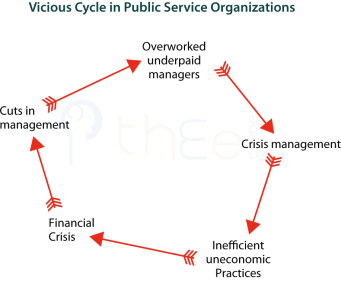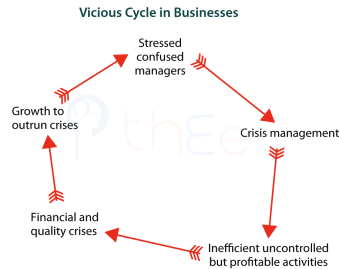Getting Control of Activities

Managers are paid to control activities—which they may do in a more or less sensitive and appropriate way.
► Effective «good» control feels just like proper organization.
► Ineffective «bad» control feels like coercion or mismanagement.
When is Enough Enough?
The way to strengthen a management culture is to introduce additional values as rules or principles that constrain expedient responses. See explanation.
But when is the time right to add a new value-set?
Three Key Questions

Where Next?
To break out of the stranglehold of pragmatic fixes, it becomes essential:
● to clarify exactly what work has to be done and make arrangements to ensure all of it is done properly
● to get people of the right calibre, experience and qualifications into suitable well-defined posts with appropriate authority
● to introduce procedures and systems that are efficient and prevent crises.
This is pure thinking.
Without this base of structural clarity and management capability, no other mode of achieving can address pragmatic follies and improve the organizational culture.
Attempts to improve management through computerizing information () or planning () fail—or can even destroy the organization, given the chaos and lack of any effective managerial structure.
There can be no solution by installing responsive or values, because what is needed is effective coordination and systematic control of the work. Complex values are a fantasy-land option.
So there is only one possibility: the , whose values align precisely with the urgent need for the responsible sensible control of activity.
- Next step: Stage-2: Structuralist.
Originally posted: 17-Jun-2011